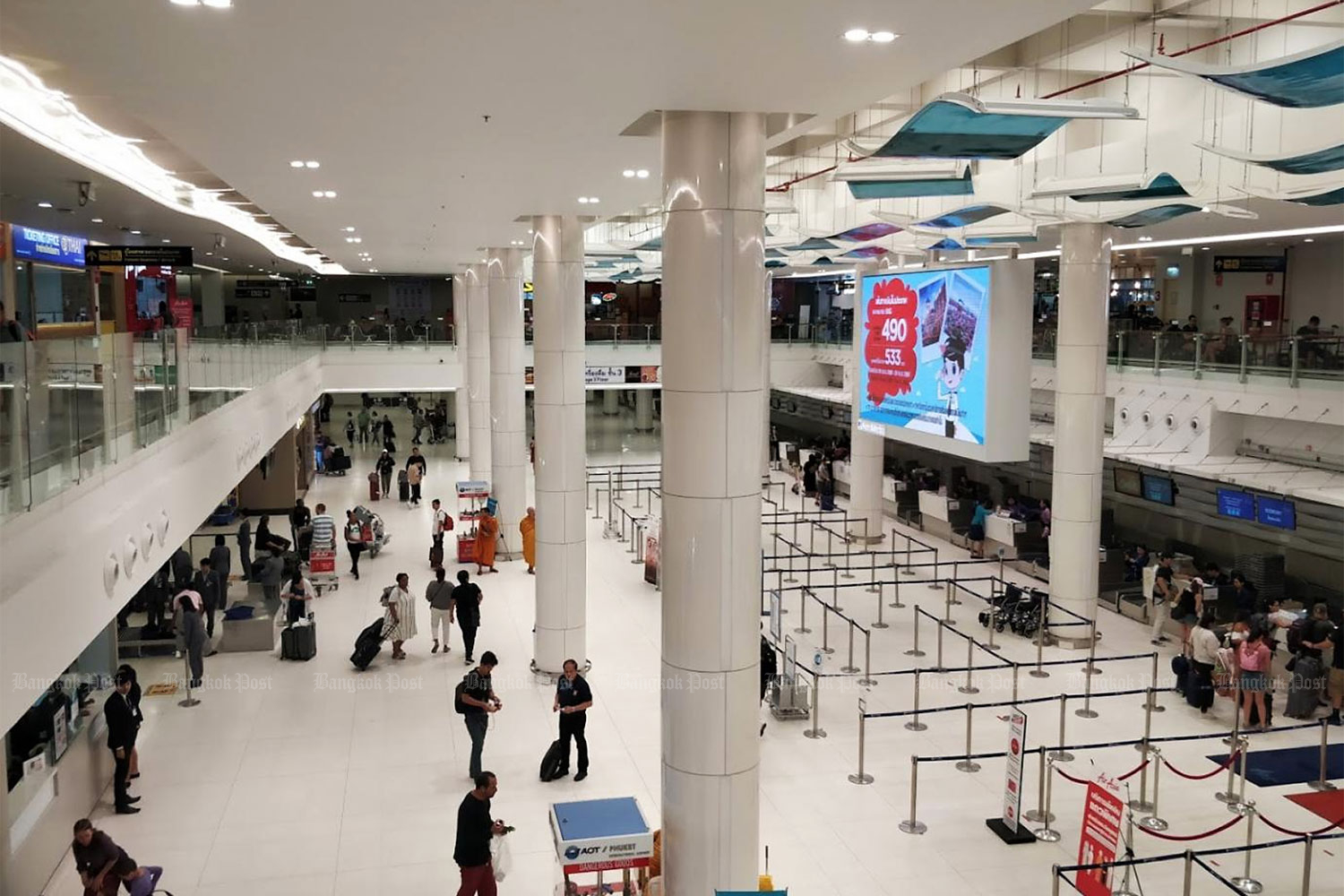
The government is confident that a new reopening plan for Phuket will conform with public opinion, while a local hotel association is calling for safe, pragmatic and strategic entry for foreign travellers.
The draft reopening plan for foreigners, to be trialled as a pilot project in Phuket, drew backlash from the local community and prompted Prime Minister Prayut Chan-o-cha to halt progress and ask for a revision last week.
Deputy Prime Minister Anutin Charnvirakul said the government has fully supported local operators to help mitigate the pandemic impact, but it also needs cooperation from the community.
Mr Anutin, who doubles as the public health minister, told locals that the ministry has solid preparations -- including hospitals, medicines, equipment and personnel -- to look after incoming guests, particularly if there are no infections, unlike in the early stages of the pandemic before lessons were learned.
"I don't know whether the opposition are truly locals or not," he said. "If they really are, they have to support and stand with the idea to help the province, which the Public Health Ministry already affirmed."
Phiphat Ratchakitprakarn, the tourism and sports minister, said that after officials from his ministry visited the province in the past weekend and held a dialogue with local residents and businesses, most agree with the regulation that tourists have to stay in 14-day quarantine -- the same as Thai returnees.
After the surveillance period ends, visitors have to stay in Phuket for at least seven days before continuing their trips elsewhere in the country.
Mr Phiphat acknowledged some misunderstandings about unclear safety measures in recent weeks, which stirred negative sentiment towards the reopening plan.
He said people in Phuket would like to focus on foreigners who have family or work in the province as the first group of arrivals.
The ministry aims to bring back every potential group, including leisure travellers from low-risk countries in later stages.
Mr Phiphat will propose the new reopening concept to Gen Prayut after accounting for opinions from the local community.
A completed tourism plan will have to be approved by the Centre for Covid-19 Situation Administration, the Center for Economic Situation Administration and a cabinet meeting this month.
"We will try our best to bring international tourists to the country before the end of the year," Mr Phiphat said.
Vichit Prakobgosol, president of the Association of Thai Travel Agents, said Atta plans to create a safety tourism scheme for Asian tourists without undergoing 14-day quarantine by using services from tour operators and complying with stringent safety measures.
This week, Atta will meet operators and locals in Pattaya to seek practical measures based on those ideas.
Anthony Lark, president of the Phuket Hotels Association, said it may take months for the government to bring forth a plan, which still needs wider local support and inter-ministerial coordination.
Attempts to stimulate local demand cannot prevent the dramatic loss of jobs and rapidly deteriorating financial crisis for owners and operators, as hotels are reported to have single-digit occupancy rates.
Hotels in Phuket are unable to sustain their business by depending on domestic consumption. Some 86,000 registered rooms on the island cannot break even or maintain positive cash flow, resulting in 50,000 job losses if international tourists are not allowed, Mr Lark said.
"Greater proactive dialogue between the public and private sector has to be undertaken," he said, "while the Bank of Thailand has to look at interim measures to assist hotels with short-term operations by bridging loans to weather the storm and retain jobs."
C9 Hotelworks managing director Bill Barnett said jobs in the involved sectors, such as construction, real estate and retail, are also at risk, as those sectors see a domino effect when 69% of the development pipeline is being delayed or put on hold.
"Thailand's failure to relaunch overseas tourism creates a dangerously perilous scenario for Phuket's hospitality industry," Mr Barnett said.
